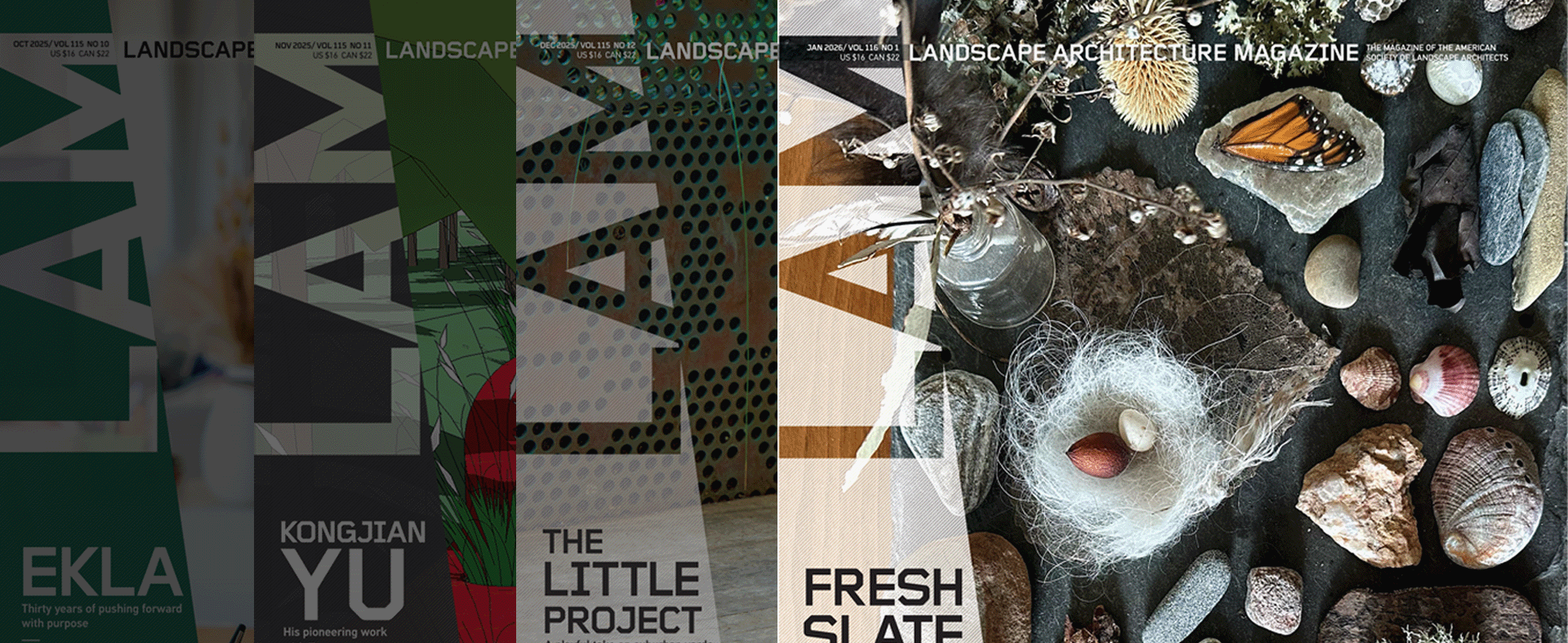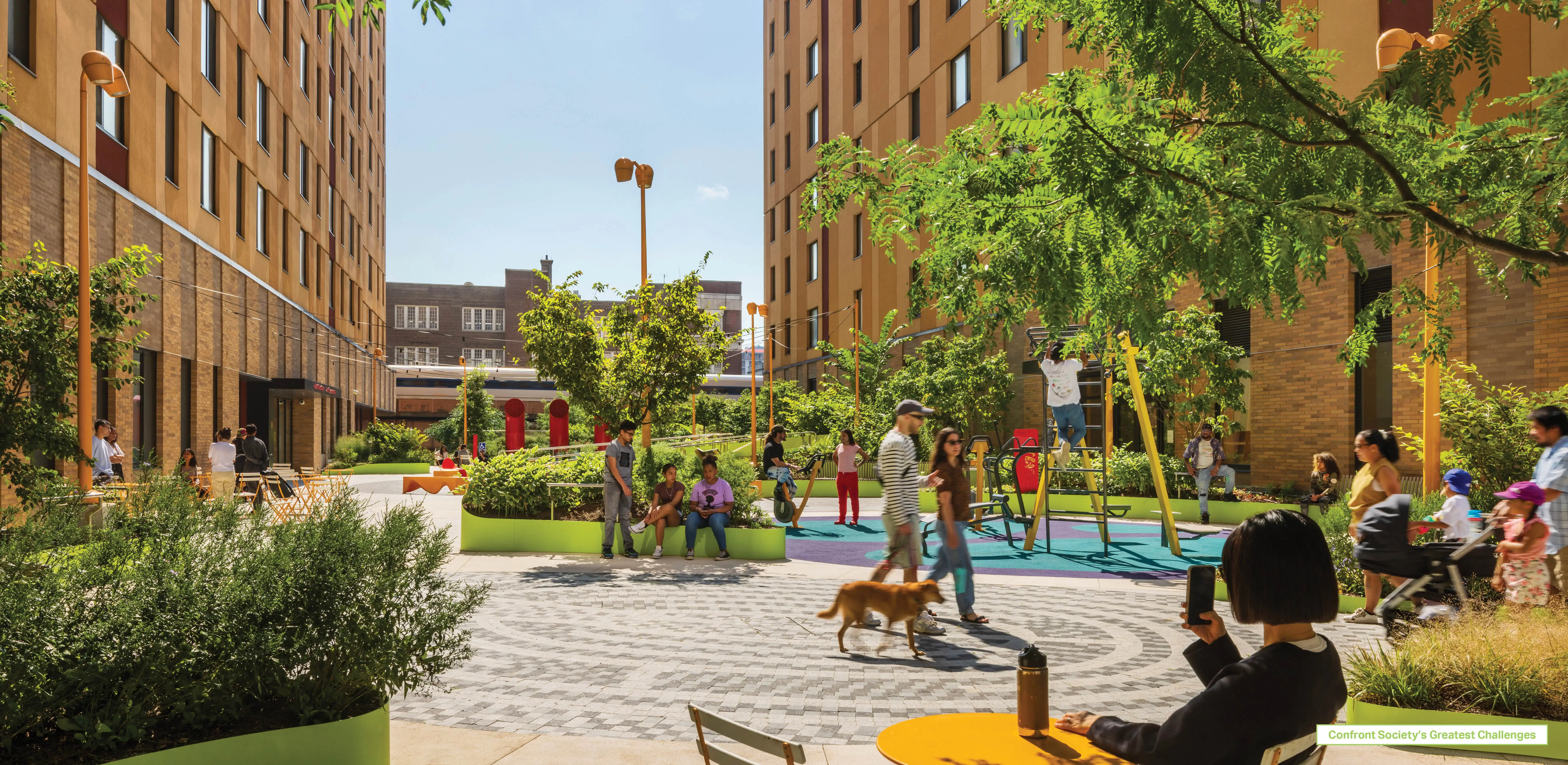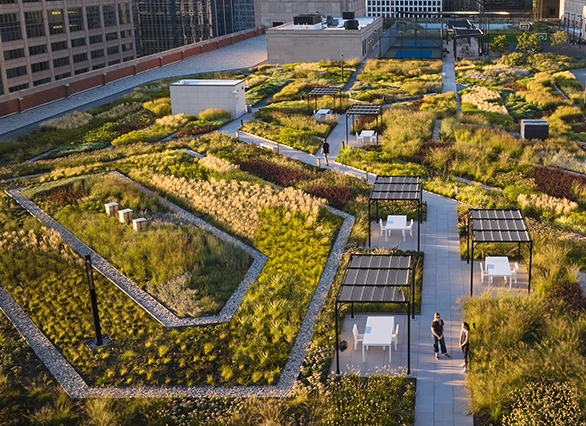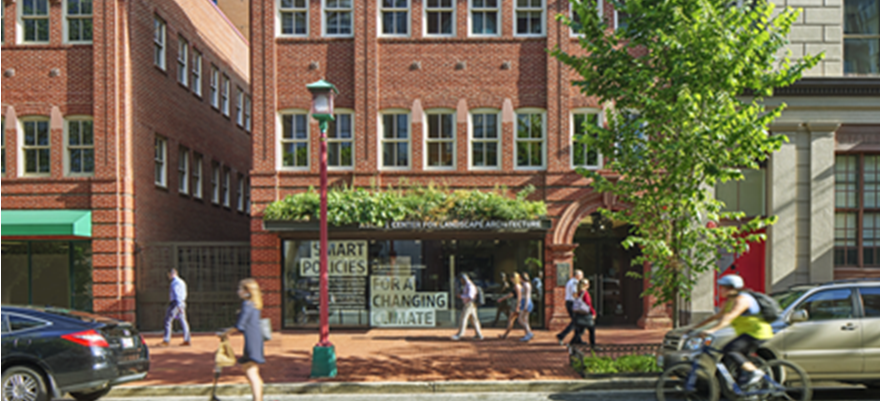Gardens and Permaculture
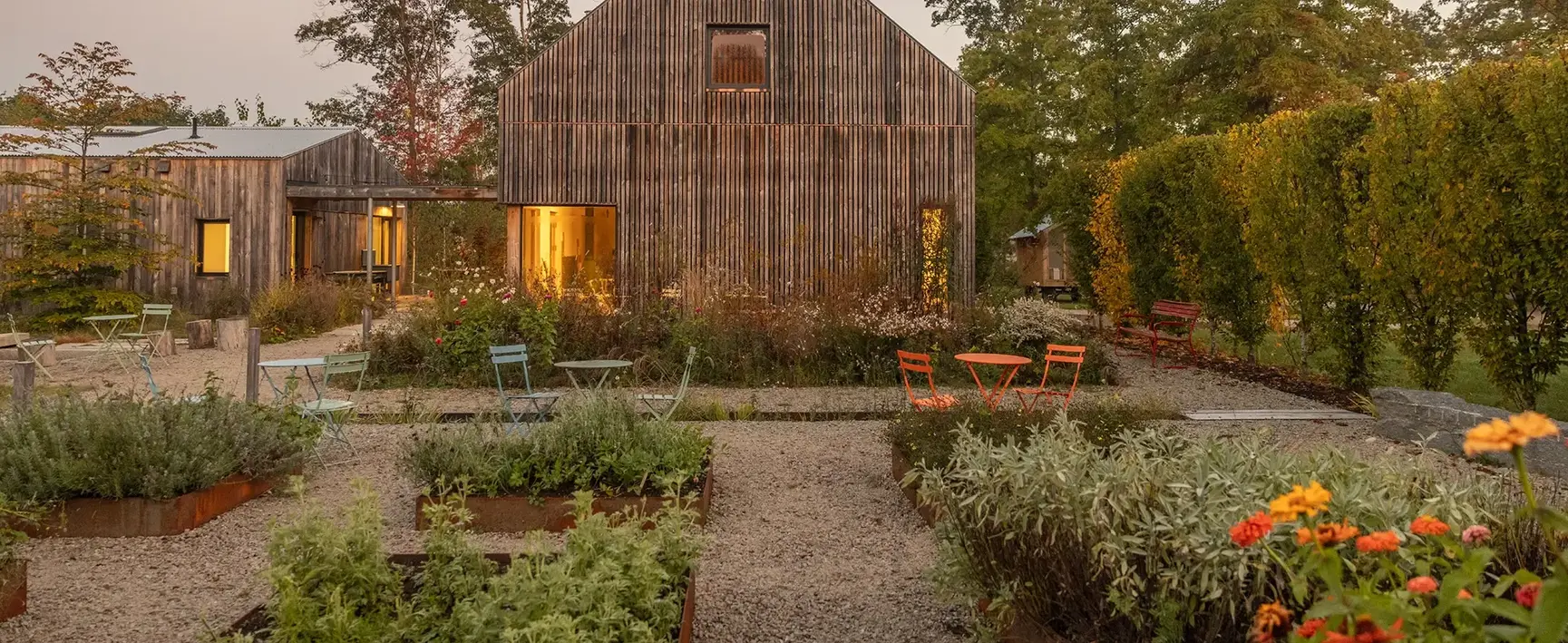
The United Nations estimates that by 2050, 70 percent of the world’s population will be live in cities. In urban and suburban areas, residents can grow their own food on their property or in community plots to boost nutrition, save money, and build community connections. Edible gardens enable homeowners to grow food in the ground, raised beds, pots, or trellises and produce fruits, vegetables, and herbs.
However, fertilizers used in home gardens can pollute local watersheds. To avoid contaminating watersheds and damaging local ecosystems, homeowners growing productive landscapes should practice ecological gardening. They can use productive plants native to their environment and limit the use of chemicals.
By employing concepts of permaculture, or agriculture ecosystems that use patterns in nature to develop sustainable environments, homeowners can ensure food production and garden systems are integrated with the natural environment. Landscape architects can design agricultural practices that minimize ecological impact and enhance community benefits of local food sources. One way to do this is increasing connectivity among shared productive landscapes.
Local governments work with communities to expand the growth of urban and residential farming schemes, community vegetable gardens, and home-based garden plots through policy, tax incentives, and including urban agriculture in the planning process. In 2013, Boston adopted a zoning policy that allows for traditional and rooftop gardening, community gardens, hydro and aquaponics, beekeeping, chicken raising, and farmers' markets.
Many municipal and local governments offer grants and other forms of support to community groups starting productive gardens in residential areas. For example, California’s Urban Agriculture Incentive Zones Act, which went into effect in 2014, allows county board supervisors to designate “urban agriculture incentive zones,” for privately owned, vacant land where the landowner can commit their land to agriculture in exchange for a property tax reduction.
Sources: “Urbanization and its implications for food and farming,” David Satterthwaite, Gordon McGranahan, Cecila Tacoli, The Royal Society Publishing, 2010; Promoting Urban Agriculture Through Zoning, Sustainable Cities Initiative
Organizations
American Community Gardening Association
Edible Schoolyard
Resource Centers on Urban Agriculture and Food Security
Urban Farming
Urban Harvest
Berkeley Food Institute
Resources
How to Start a Community Garden, HowStuffWorks.com
Los Angeles Finally Allows Parkway Farming, The Dirt, American Society of Landscape Architects
An Urban Farm in Detroit Aims for Profit, The Dirt, American Society of Landscape Architects
Interview with Steven Nygren on Serenbe, a Farm to Table Community, The Dirt, American Society of Landscape Architects
Interview with Fritz Haeg, Author of "Edible Estates: Attack on the Front Lawn", The Dirt, American Society of Landscape Architects
Permaculture = Permanent Agriculture, The Dirt, American Society of Landscape Architects
City Bountiful: The Rise of Urban Agriculture, The Dirt, American Society of Landscape Architects
Vegetable Gardening, Backyard Gardener
Brownfields and Community Supported Agriculture, Environmental Protection Agency
Urban Agriculture Toolkit, United States Department of Agriculture
Research
“Practical Permaculture for Home Landscapes, Your Community, and the Whole Earth,” Jessi Bloom, Dave Boehnlein, Timber Press, 2015
“Farming the Woods: An Integrated Permaculture Approach to Growing Food and Medicinals in Temperate Forests,” Ken Mudge, Steve Gabriel, John F. Munsell, Chelsea Green Publishing, 2014
"Edible Estates: Attack on the Front Lawn, 2nd Revised Edition: A Project by Fritz Haeg," Will Allen, Diana Balmori, Rosalind Creasy, Fritz Haeg, Michael Pollan, Eric Sanderson, Lesley Stern, Metropolis Books, 2010
“The Resilient Farm and Homestead: An Innovative Permaculture and Whole Systems Design Approach,” Ben Falk, Chelsea Green Publishing, 2013
“The Edible Front Yard: The Mow-less, Grow-More Plan for a Beautiful, Bountiful Garden,” Ivette Soler, Timber Press, 2011
“Western Garden Book of Edibles: The Complete A-Z Guide to Growing Your Own Vegetables, Herbs, and Fruits,” Editors of Sunset Magazine, Oxmoor House, 2010
“Edible Landscaping,” Rosalind Creasy, Counterpoint, 2010
“Designing Urban Agriculture: A Complete Guide to the Planning, Design, Construction, Maintenance and Management of Edible Landscapes,” April Phillips, Wiley, 2013
Government Resources
Urban Agriculture Property Incentive Tax, California
Sustainable Food Center, Austin, Texas
Article 89, Urban Agriculture, Boston, Massachusetts
Urban Agriculture FAQ, Chicago, Illinois
Homegrown Minneapolis, Minneapolis, Minnesota
Urban Food Zoning Code Update, Portland, Oregon
P-Patch Community Gardening, Seattle, Washington
Urban Agriculture in Rust Belt Cities, Cleveland, Ohio
Community Garden Organization Capacity Building Grant Program, Department of Agriculture and Markets, State of New York
Community Garden Program, Arlington, Virginia
GreenThumbNYC, Department of Parks & Recreation, New York City
Los Angeles Community Garden Council
Urban Agriculture and Community Gardening, Alternative Farming Systems Information Center, U.S. Department of Agriculture
Projects
City House in a Garden, Chicago, Illinois
McKay Landscape Architects
Carnegie Hill House, New York City
Nelson Byrd Woltz Landscape Architects
Maple Hill Residence, Westwood Massachusetts
Stephen Stimson Associates Landscape Architects
Curran House, San Francisco, California
Andrea Cochran Landscape Architecture
Edible Estate Regional Prototype Garden #3, Maplewood, New Jersey
Edible Estate, Southwark, London, England
Edible Estate Regional Prototype Garden #4, London (UK)
Edible Estates Garden #8 - Lenape Edible Estate, Manhattan, New York

.webp?language=en-US)
